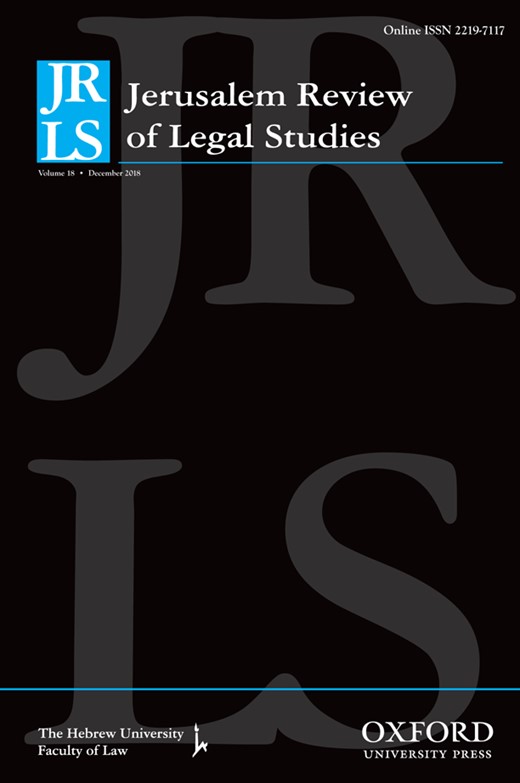-
Views
-
Cite
Cite
Miriam Gur-Arye, Public Wrongs that Violate Human Rights—Following Duff, The Realm of Criminal Law, Jerusalem Review of Legal Studies, Volume 18, Issue 1, December 2018, Pages 1–15, https://doi.org/10.1093/jrls/jly011
Close - Share Icon Share
Extract
Introduction
In his book The Realm of Criminal Law,1 Duff offers a theory of criminalization grounded on political theory. According to that theory, criminal law is concerned with public, rather than with moral, wrongs. Public wrongs violate the polity’s civil order. The civil order defines which activities of its citizens are the polity’s business and as such belong within the public realm. The primary addressees of the criminal law are citizens, who are bound by the criminal law, and in whose name the criminal law calls those who commit public wrongs to account.
In this comment, I will argue that a political theory of criminalization ought to grant “human rights” a more central role. Such a role requires distinguishing between two kinds of duties violated by crime: duties that we owe to our fellow citizens and duties that we owe to each other as human beings. When calling to account wrongdoers, who violate their duties quo citizens, as in cases of election malpractice, tax evasion, the polity speaks in the name of its citizens. When calling to account wrongdoers, citizens and noncitizens alike, who violate within the polity’s jurisdiction, what we owe to each other quo human beings, as in cases of murder and rape, the polity speaks in the name of human beings.




